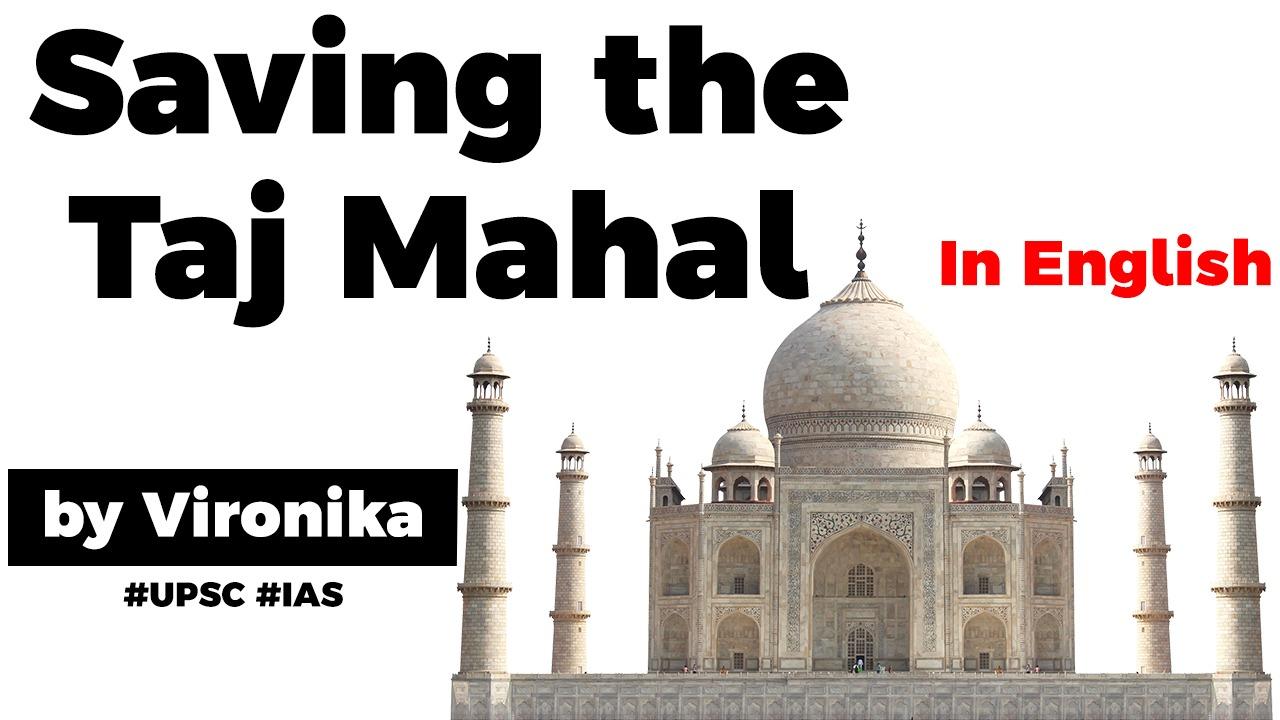Table of Contents
Taj Mahal Complex
- The Taj Mahal complex had been spruced up for the visit of US President Donald Trump and First Lady Melania Trump.
- The Taj Mahal is an ivory-white marble mausoleum on the south bank of the Yamuna river in the city of Agra.
- It was commissioned in 1632 by Shah Jahan (reigned from 1628 to 1658) to house the tomb of his favourite wife, Mumtaz Mahal;
- It also houses the tomb of Shah Jahan himself.
- The Taj Mahal was designated as a UNESCO World Heritage Site in 1983 for being “the jewel of Muslim art in India and one of the universally admired masterpieces of the world’s heritage
- Firstly, the polluting industries and the vehicular emissions
- The second reason is that the Yamuna River
- There is no aquatic life in it, and has caused insect and algae infestation on the Taj Mahal and other monuments situated on its banks.
- Mud packs have been one of the ASI’s favoured ways to remove the yellow stains that have appeared over the years on the Taj Mahal’s white marble facade.
- The clay is applied in the form of a thick paste that absorbs the grime, grease and bird droppings on the marble, before being washed off using distilled water.
- The process is slow and tortuous, but is believed to leave the marble cleaner and shinier.
- The Archaeological Survey of India (ASI) has submitted a host of measures as part of a “Site Management Plan”
- For avoiding discolouration:
- For tackling pollution:
- For managing footfall
- Petitions for the conservation of Taj has been hovering the corridors of Supreme Court for over 3 decades now.
- In a 1996 case, the SC ordered a slew of measures, including the closure of factories in the vicinity, to protect the monument.
- Renowned experts and institutions working in the field of conservation and preservation might help in finding solutions.
- As Taj Mahal is a World Heritage Site, considerable international interest is a granted one, which needs to capitalised on.
Latest Burning Issues | Free PDF























 WhatsApp
WhatsApp